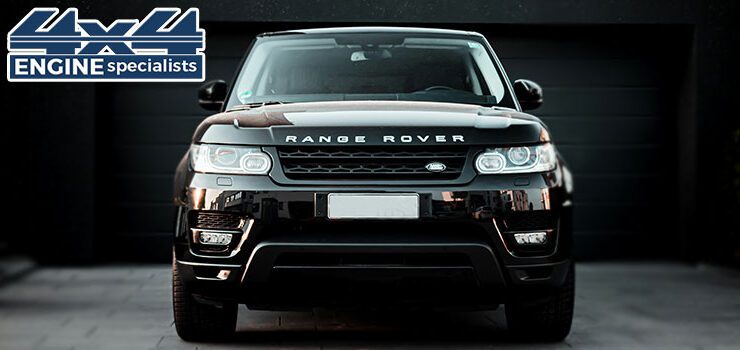Owning a Range Rover 2.0 Engine is not just a symbol of luxury and style but also a commitment to maintaining the high-performance standards that come with it. The heart of this magnificent machine lies in its engine, and proper maintenance is crucial to ensure its longevity and optimal functionality.
Understanding the Range Rover 2.0 Engine:
Before delving into maintenance tips, it’s essential to have a basic understanding of the Range Rover 2.0 engine. This powerhouse is equipped with advanced technology, offering a blend of performance and efficiency. Knowing your engine’s specifications can guide you in providing the care it deserves.
Regular Oil Changes:
One of the fundamental maintenance practices for any vehicle, and particularly crucial for high-performance engines like the Range Rover 2.0, is regular oil changes. Engine oil lubricates and protects the engine’s components, resulting in smooth operation. Aim to change the oil at manufacturer-recommended intervals, typically every 5,000 to 7,500 miles.
Choose Quality Engine Oil:
Not all engine oils are created equal. Opt for high-quality, synthetic oils that meet the specifications outlined in your Range Rover 2.0 owner’s manual. Quality oil enhances engine performance, reduces friction, and contributes to better fuel efficiency.
Air Filter Maintenance:
The air filter is a vital component for the engine’s health, as it prevents dirt and debris from entering the system. Check and change the air filter as recommended by your vehicle’s maintenance plan, or more regularly if you travel in dusty circumstances. A clean air filter promotes efficient combustion and improves fuel economy.
Cooling System Care:
The Range Rover 2.0 engine relies on an efficient cooling system to prevent overheating. Regularly check coolant levels and ensure that the radiator, hoses, and water pump are in good condition. Overheating can lead to severe engine damage, so preventive measures are key.
Spark Plug Maintenance:
Spark plugs play an important function in the combustion process. Inspect and replace spark plugs as recommended by the manufacturer, typically every 30,000 to 60,000 miles. Fresh spark plugs ensure efficient fuel combustion, contributing to optimal engine performance.
Regular Inspections:
Perform regular visual inspections of your engine. Look for signs of oil or coolant leaks, damaged hoses, and loose or damaged belts. Early discovery of problems enables rapid repairs, avoiding potential significant engine damage.
Battery Health:
A healthy battery is essential for starting your Range Rover 2.0 engine reliably. Check the battery terminals for corrosion, ensure proper cable connections, and test the battery’s voltage regularly. Replace the battery if it shows signs of weakness or is approaching the end of its lifespan.
Keep the Exhaust System in Check:
A well-maintained exhaust system not only ensures optimal engine performance but also helps minimize environmental impact. Check for any leaks, rust, or damage in the exhaust system, including the catalytic converter. Prompt repairs can prevent further complications and maintain the engine’s efficiency.
Follow Manufacturer’s Guidelines:
Adhering to the manufacturer’s maintenance guidelines is crucial for keeping your Range Rover 2.0 engine in top condition. Consult the owner’s manual for specific recommendations regarding service intervals, fluid types, and other essential details.
Tire Maintenance:
Proper tire maintenance is often overlooked but plays a significant role in the overall health of your Range Rover 2.0. Check the tire pressure regularly and ensure it aligns with the manufacturer’s recommendations. Under-inflated or over-inflated tires can affect fuel efficiency and handling. Rotate the tires at the recommended intervals to ensure even wear and longevity. Additionally, keep an eye on the tire tread depth and replace tires when they become worn to maintain optimal traction and safety.
Brake System Inspection:
The brake system is crucial for both safety and performance. Regularly inspect the brake pads, rotors, and brake fluid levels. Replace brake pads as recommended by the manufacturer, and address any brake issues promptly. A well-maintained brake system not only ensures safe driving but also contributes to the longevity of other components in the vehicle.
Transmission Fluid Check:
The transmission is a complex and vital part of the Range Rover 2.0 drivetrain. Regularly check the transmission fluid levels and follow the manufacturer’s recommendations for fluid changes. Clean and sufficient transmission fluid helps ensure smooth gear shifts and prevents premature wear on transmission components. More details about the range rover 2.0 engine visit us at https://4x4enginespecialists.co.uk/ .
Electronic System Updates:
Modern vehicles, including the Range Rover 2.0, come equipped with sophisticated electronic systems. Stay informed about any software updates or recalls issued by the manufacturer. Keeping your vehicle’s electronic systems up-to-date ensures optimal performance and may address potential issues before they become major problems.
Drive Responsibly:
Your driving habits significantly impact the wear and tear on your Range Rover 2.0 engine. Avoid aggressive driving, excessive idling, and over-revving the engine. Smooth acceleration and deceleration can contribute to better fuel efficiency and reduce stress on engine components.


